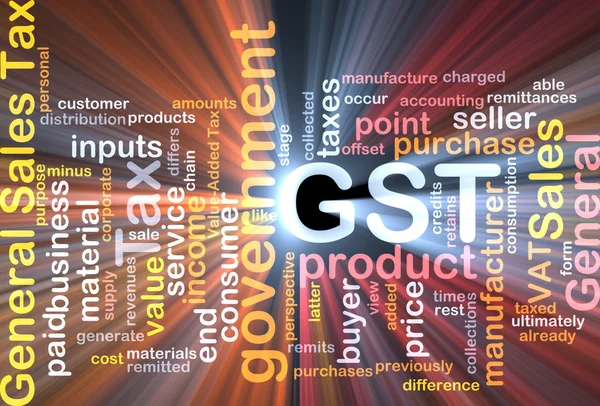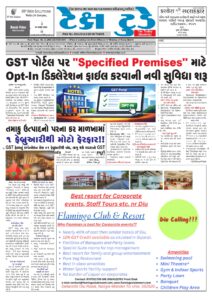Whether the Condonation Appeal can be rejected without providing the Opportunity of Personal Hearing?

 By Adv. Bhargav Ganatra, Rajkot, Gujarat
By Adv. Bhargav Ganatra, Rajkot, Gujarat
Background: –
It has been come to my knowledge that GST Appeals which were filed beyond the period of 4 months from the date of order, are being summarily rejected on the basis delay in filling appeal. A key concept of date of communication of appeal is being missed??
Thus, in this chaotic situation, A Key Question has been raised that, Whether the Condonation Appeal can be rejected without providing the Opportunity of Personal Hearing.
What is the Legal Provision? : –
Section 107(1) of CGST Act, 2017 states that Any person aggrieved by any decision or order passed under this Act or the State Goods and Services Tax Act or the Union Territory Goods and Services Tax Act by an adjudicating authority may appeal to such Appellate Authority as may be prescribed within three months from the date on which the said decision or order is communicated to such person.
Further, Section 107(4) of CGST Act, 2017 states that The Appellate Authority may, if he is satisfied that the appellant was prevented by sufficient cause from presenting the appeal within the aforesaid period of three months or six months, as the case may be, allow it to be presented within a further period of one month.
Thus, Whether the time barred Appeal [ i.e. Appeal Which were filed beyond the period of 4 months from the date of communication of order] can be condoned by Appellate Authority or not is already a burning question.
For this, there are divergent views of different High Courts on the Issue.
For Example, Hon’ble Allahabad High Court in the case of M/s. Garg Enterprise vs. State of UP and Ors. has held that, “Section 107 of the Act specifically provides for the limitation and in the absence of any clause condoning the delay by showing sufficient cause after the prescribed period, there is complete exclusion of Section 5 of the Limitation Act.”
Whereas, Hon’ble Calcutta High Court in the case of S.K. Chakraborty & Sons Vs. Union of India & Ors. has held that, “in our view, since provisions of Section 5 of the Act of 1963 have not been expressly or impliedly excluded by Section 107 of the Act of 2017 by virtue of Section 29 (2) of the Act of 1963, Section 5 of the Act of 1963 stands attracted.”
However, whatsoever may be the one believe, Appellate Authority may or may not condone the delay beyond 1 month, but whether one can say that just because your appeal was filed beyond the period of 4 months from the date of communication of order and therefore there is no need of opportunity of personal hearing?
Whether the condonation Appeal can be rejected without providing the Opportunity of Personal Hearing?
Section 107(8) of the CGST Act, 2017 states that The Appellate Authority shall give an opportunity to the appellant of being heard.
Thus, it is very crystal clear that if any appeal has been filed with the Appellate Authority, whether time barred or not, then he shall get the opportunity of personal hearing.
Further, Hon’ble Supreme Court in the case of Union of India Versus Jesus Sales Corporation has held that, “The Appellate authority may dispense with such deposit in its discretion. The proviso relating to the condonation for delay in filing the appeal is more or less on the pattern of Section 5 of the Limitation Act. Somehow, a practice has grown throughout the country that before rejecting the prayer for condonation of delay in filing the appeal or application, opportunities are given to the appellants or petitioners, as the case may be, to be heard on the question whether such delay be condoned. Opportunities to be heard are also the contesting respondents in such appeals. In different statutes given to where power has been vested in the Appellate authority to condone the delay in filing such appeals or applications, there are no specific provisions in those statutes saying that before such delays are condoned the appellants or the applicants shall be heard, but on basis of practice which has grown during the years the courts and quasijudicial authorities have been hearing the appellants and applicants before dismissing such appeals or applications as barred by limitations. It can be said that courts have read the requirements of hearing the appellants or the applicants before dismissing their appeals or applications filed beyond time on principle of natural justice, although the concerned statute does not prescribe such requirement specifically.”
Moreover, Hon’ble Gujarat High Court in his landmark judgement of Aggarwal Dyeing and Printing Works Versus State of Gujarat had drawn the attention of the Appellate Authority who had mechanically disposed of the appeals on the ground of delay. Additionally, It has been observed that, “Apt would be to revisit the observations of the Supreme Court with regard to reasonable opportunity in the case of Union of India vs. Jesus Sales Corporation, reported in 1996 (4)SCC 69, wherein it is observed that a practice has developed holding that even in the absence of a provision providing for an opportunity of hearing, such a provision is required to be read into the Rules governing the case, particularly, when an order being made is likely to have civil consequences. The Hon’ble Supreme Court has emphasize up on the appellate court to have the approach tilting in favour of providing fair and reasonable opportunity of hearing while dealing with condonation of delay application in filing appeal.”
We may have heard that it is settled legal position of law that reasons are heart and soul of the order and non-communication of same itself amounts to denial of reasonable opportunity of hearing, resulting in miscarriage of justice.
In the end, In My Humble Opinion, Appellate Authority shall dispose the appeal after providing the reasonable opportunity of hearing and discussing the merits of the case too.
If this has been done, then only question that will pertain before the Hon’ble Tribunal or Hon’ble High Court is that, Whether Condonation needs to be allowed or not?
Conclusion :-
As previously mentioned, several appeals have been mechanically disposed of on the ground of delay. However, it is very obvious fact that every taxpayer will not travel to High Court for the sake of justice.
Hence, I want to conclude my discussion with the quote of Nani Palkhivala that, “We must get away from the fallacy of-the legal solubility of all problems.”




